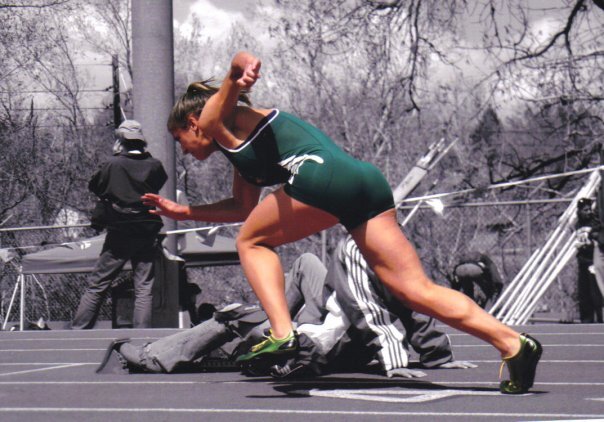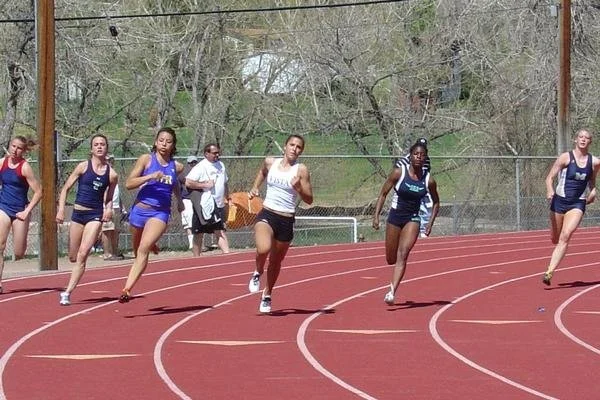When Losing Sports Meant Losing My Identity
It’s a tale as old as time.
Athlete works really hard at a sport. Athlete associates most, if not all, of his or her value in being part of a team and striving to achieve physical goals. Athlete is forced to retire from said sport because of graduation, injury, or age. Athlete suffers from a string of mental health issues that are often avoided by society.
I know, I’m one of them. And I’m accompanied by a long list of non-professional and professional athletes alike (for the record, I fall into the former, not the latter).
Speaking of professionals, the HBO documentary “The Weight of Gold” is narrated by Michael Phelps and chronicles many U.S. Olympic athletes who reach the Summer or Winter Games and then have to cope with the aftermath. Currently, there are no programs to help Olympic athletes transition to a world outside of sport (who am I kidding, there are minimal resources to help any athletes leaving any sports).
In a summary article in The Washington Post about the documentary, Lolo Jones, both a world-class hurdler and bobsledder, is quoted as saying “I’ve given my blood, sweat and tears, I’ve given my talent, and all I am asking is that after it’s all said and done, someone can help me mentally get through this.”
It’s what Shaun White, three-time snowboarding gold medalist, calls the “dramatic emptiness.”
And Phelps claims that “eighty percent [of athletes] or more go through some kind of post-Olympics depression.”
I repeat, Olympic athletes are not alone. They’re accompanied by handfuls of former other professionals, from the NBA to the NFL to baseball and tennis and golf and ice skating.
Oh, and me. They’re accompanied by me.
In my past life, I was a track athlete. And while I still consider myself to be an athlete, the dynamic of being part of a team to being an individual who identifies as being athletic are two totally different things.
Photographic Evidence of Me in My Past Life
As a teammate, I was always racing for something bigger than myself (I think Phelps would agree). There was nothing cooler than giving my all on the track and winning, which would then be followed by a series of hugs by teammates before preparing to run a relay race. By default, these teammates were family. They knew what I ate throughout the day, my bathroom habits and menstrual cycle (if you know, you know), and the exact way I’d get into the blocks before the start. Spring was my safe place. It was track season. It was the season that all of us had been training for the entire rest of the year. And it was there. I was touching it. Then it wasn’t. I’d blink my eyes and another season would be unfolding into summer, and the training process would start all over again. Until it was over. Again. But, like, really over (cue the “dramatic emptiness”).
For some back story, I got a full ride scholarship (my very first offer) to Drake University. I soon learned that the freedom of being in another state with the added peer pressure of drinking wasn’t great for my track career. A few factors went into me leaving Drake before my four years were up, but I knew in my heart it was time. The priority became just finishing my degree, which I did back home at the University of Colorado at Denver.
I had worked out every day, some days twice a day, for over six years. All of a sudden I found myself in this place of complete confusion as it related to movement and my physical fitness. Do I go to the track and do some random workout I once knew? Or do I get confused at the gym? I didn’t have those answers. So, honestly, I really didn’t do anything for awhile.
When I was seemingly ready, I thought that, because I was a sprinter, I should just start running longer distances (as if they’re remotely close to being the same thing). With the most minimal amount of training ever (as in, nothing that I’d ever recommend to anyone now), I signed up for and ran my first marathon in LA a year after I left Drake.
Newsflash. I hated it. Like HATED it.
I ran through pouring rain, threw up, and wanted to die. Pretty cool, huh? Yeah, no. And the worst part? I kept doing it! I figured I’d done one so the athlete in me assumed it only natural to keep going. I signed up for two more. And that’s all it took for me to finally come to my senses (not because I have anything against running longer races, but because it was not right for me and what my body needed at that time in my life). I wanted to move, but it was more than that. I needed a community, to feel part of something that I’d lost in my transition away from sport.
Who was I? Where was my team? How would I push myself? I didn’t even know how or why I was working out without being a teammate and athlete. It was a sort of depression I never even knew I was going through until after the fact. Not having that family-like team was coupled with the added pressure of going to school and having several jobs to now pay for said school and life. Then, I’d get internships for school, unpaid, which kept digging me into a hole that ended up being so much deeper than I ever thought it was.
So, how did I save myself from the “dramatic emptiness?”
I wish I could share with you some compelling story about my high levels of self-awareness that propelled me into proactivity, which then landed me here, as an entrepreneur in the fitness space. The story is beautiful, but it’s not calculated. I simply went to a workout at the park. There were moves I once did filled with high-fives and fist-bumps followed by hugs. I realized that the definition I constructed around the word “team” wasn’t inclusive. I didn’t need to be winning medals to feel like I was part of something bigger than myself (you can read more about my transition into full-time fitness here).
I have a happy ending. Many do not.
For those of you who can relate, I’d love for you to share any resources that were fundamental to your growth.
For those of you who are on a team and love the experience of sport, cherish it. Do not take it for granted. I know there are a lot of sub-par coaches out there that taint the overall experience, but please do not let that ruin the myriad of other relationships and the opportunity for beautiful memories.
Finally, for those of you that are in the middle of this transition, do the work to deeply understand what motivates and inspires you. There are many reasons that athletes struggle after leaving a sport. For me, it was the team camaraderie. For you, it might be the verbal acknowledgement of being the best, the ease of being seen, the adrenaline, the competitiveness. You must nail down what that looks like for you because there are so many other available avenues to experience those feelings in a healthy way in “the real world.”
It’s hard. It’s weird. It’s uncomfortable. And, yes, it can absolutely be depressing. If you find yourself falling deeper into that depressed state, I highly encourage utilizing therapy (there’s even online therapy now, you guys!). I believe that our greatest healing occurs when we utilize our voices and share our stories.




